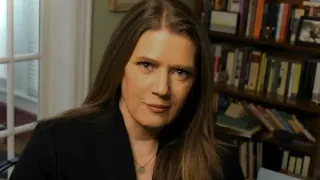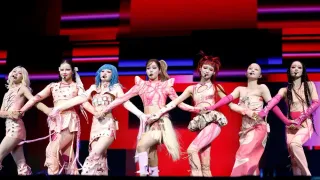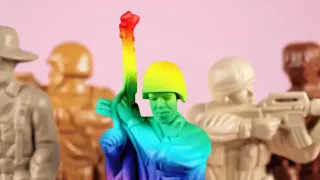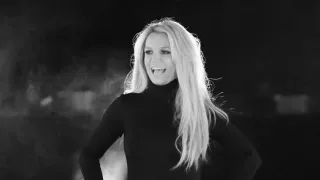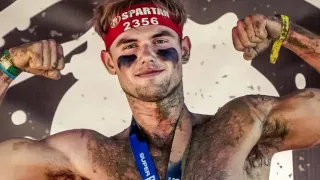March 15, 2022
Janis Ian: Lighting the Way in Music
Gregg Shapiro READ TIME: 12 MIN.
Singer-songwriter Janis Ian has had four distinct chapters in her musical career. The first began when she was in her teens with the release of her groundbreaking single "Society's Child," and the albums on Verve Records that followed in the late 1960s.
By the mid-1970s, for the second chapter, Ian had signed to Columbia Records, resulting in the biggest hit single of her career, the Grammy Award-winning classic "At Seventeen." She remained on Columbia into the early 1980s, even collaborating with Giorgio Moroder on the song "Fly Too High."
The third chapter occurred in the early 1990s. Bette Midler recorded Ian's song "Some People's Lives," the title track of Bette's Grammy-winning 1991 album. Ian herself recorded the song for her marvelous 1993 comeback album, the aptly titled Breaking Silence.
Ian, who's been out as a lesbian for decades, has not been sitting idle since that time. She's released a few more albums, including some on her own Rude Girl Records label. She also published her memoir, Society's Child: My Autobiography in 2008 and won her second Grammy for the audiobook.
I have had the pleasure of interviewing Janis four previous times, and it is always a revelatory experience. We talked about the release of her flawless new album, The Light at the End of the Line (Rude Girl).
Gregg Shapiro: I've been wracking my brain trying to come up with the best way to say this, and I keep returning the fact that with "The Light at the End of the Line," your extraordinary last solo studio album, you are going out with a bang.
Janis Ian: [Laughs] better a bang than a whimper!
What was involved in the decision to make this your final studio recording?
I think hitting 70 was a big part of it. Having the last 15 years to put together songs and wanting to make something that was better than anything I'd done before was involved. Mostly, the timing really worked out. I went into lockdown right around when I needed or wanted to start thinking about this. I had no plans until I looked up at my write board and realized I had 15 songs I was pleased with, and one unfinished.
I started listening to what Randy Leago had done with "Resist," and I began working with Viktor Krauss on "Better Times..." I had originally intended to do an all-solo acoustic album, but it became clear that I really wanted a blend of it to serve the songs. There wasn't a sudden, "Gee, I'll make an album now" decision. There was more a talking to people and seeing where Randy and Viktor's schedules were, seeing where John Whelan was, whether we could get Nuala Kennedy to do her parts from Ireland; finding a studio where I live, which is near Bradenton, so there's not a huge amount of studios available. Then just winnowing down the songs and going, "Well, I think this is actually an album."
Among the many aspects that make "The Light at the End of the Line" exceptional is that for the 12 songs, you draw on the many influences spanning your five-decade career, beginning with "I'm Still Standing," which is as personal as "At Seventeen."
I would say so. That was part of my goal for the entire album, and part of the winnowing down of songs was to make sure that the songs I picked were as universal as possible, and also songs that would hopefully stand the test of time.
It's incredible that "At Seventeen" was released in 1975. It's 45 years later, and it's still getting lots of airplay. Lots of people still sing it. People are still affected by it, young people, not people anywhere close to my age. So, to make an album that would reach as many people as possible emotionally, and at the same time have songs that were as well-written as I'm capable of doing after almost 60 years as a songwriter; that was the challenge, really. So, I'm glad to hear you say that.
The social consciousness of your music extends all the way back to "Society's Child," and continues today with songs such as "Stranger" and "Resist," which include social commentary in your music.
I was raised in a very political family. I grew up stuffing envelopes and going to marches. My parents were both politically aware. My mom did things like attend the Civil Rights Congress. My parents were under watch by the FBI. So, it was a natural part of my life.
Everyone we knew was involved, in one way or another, in politics and social issues, because I would regard feminism as much as a social issue as a political one. Although the line between the two is pretty blurred these days.
"Stranger" just came out of nowhere one night. I had an off night and I never write on the road, ever. I think I've written two songs in my life while I was touring. But I was changing guitar strings and came up with that little pattern, and the song just fell out in the course of the evening.
I've been thinking about it a lot, because my own grandfather had to come into America on a cousin's passport. None of us found out his real name or the story until we were in our 20s and 30s. So I started thinking, with all these people saying, "Illegals should be deported, even if they grew up here, even if they were born here, even if they've lived here 40 years," where does that leave me? Should I be sent back to Poland or Russia or Ukraine?
It truly resonates, and it's an ongoing issue. That leads me to the next question, which is about the anthemic single, "Resist," which is one of the album's most powerful statements, with its "I will not disappear" and titular chants. Are you ever shocked that you still find yourself having to write and perform a song such as this?
I'm shocked that it hasn't been fixed by now [laughs], and that it seems to be getting worse. I think that in some ways my generation underestimated the determination of the powers that be to stay in power. We knew about the FBI and the CIA, but it would never have occurred to us that there would still be genital mutilation; that women would still be burned on pyres; that there would be revenge rape.
It's a shock that these things still need to be addressed, but it's not shocking that they need to be written about. I also think that music cuts through the noise in a way that very few other things can. Politics becomes just noise. Social media becomes just noise. Music has the ability to touch people's hearts directly in a way that none of those things can. I didn't set out with "Resist" and think, "Oh, I'm going to write a protest song about this." But I was plenty annoyed when I wrote it.
That definitely comes through.
It's a fine line for me, because my voice only carries so far. I can't do what certain singers can do with their voices. I have a relatively light voice. That's one of the great things about Randy Leago, and what he did with it. Because he managed to leave all that space for the vocal while surrounding it with ... oh, I think I had asked for angry drums. So, the first thing you hear is that thud of the bass drum, which to me is like a footstep coming into the room. Lines like "I cannot be your virgin and I will not be your whore" came out of my own experience.
It really is an incredible song. "Nina" is a breathtaking tribute to Nina Simone. It made me think about her performance in Questlove's 2021 documentary "Summer of Soul," and how she's being reintroduced to new generations. Have you seen the doc?
I have not seen that, but I did see the Liz Garbus documentary "What Happened, Miss Simone?" (from 2015) because she's singing my song in it.
What do you think she'd think of your song about her?
[Big laugh] I would not begin to wonder what Nina would think about anything. I wouldn't go there for $1,000,000. Well, maybe for $1,000,000, but I would be pretty unsure of myself. Nina was monumentally easy and monumentally difficult to love. That's what I tried to capture in the song.
She was biologically ill, mentally ill, I would say, but I'm not sure what the correct phrase is these days. But there was such a big biological aspect to it, and by the time that was really beginning to be understood and treated, she had already burned so many bridges and made so many people angry. I feel like I saw Nina at her best and her worst. Her best was so much better than any other performer I've ever watched. And her worst was pretty scary.
As a gay man, I have always loved the story about Nina's correspondence with Langston Hughes.
She and [James] Baldwin [were friends], too. We had lunch at my mother's one day, and she showed up with James Baldwin in tow. I don't think she cared about that at all, because artists tend not. It doesn't really matter; it's like skin color. Who cares, as long as you're doing great work. It's the world that surrounds us that becomes the problem.
Album closer "Better Times Will Come," with guest vocalist Diane Schuur, is the kind of uplifting number we all need at this time. Was that song as much fun to record as it is to listen to?
It began out of the Better Times project that I started when lockdown began. That involved, in the end, 187 artists all doing their own versions of the song. We've got 13 versions still to put up! Everything from Japanese sign language interpretation to a Dutch version to a Mandarin Chinese version to banjo or guitar or flat-footing.
When it came time to record it, I wanted to close the album with it, but do something completely different from what I'd done already. My version that everybody worked off for the project was just me singing the song immediately after I finished it into my phone, no guitar, no nothing. You can go to bettertimeswillcome.com and watch all those videos, see all those versions, listen to them, download them. It was a great way to promote other artists who had projects coming out and suddenly couldn't tour or make book appearances, all of that through my Facebook page.
The Facebook people were wonderfully generous. I didn't want to repeat that or reuse it, so it became question of how I do this so that it's totally different from anything on the album, and it maintains that spirit of inclusivity. I reached out to Viktor, and we literally both sat down with our phone books and went, "OK, this person would be great. That person would be great. Are they available?" Vince Gill wasn't available because he's out with the Eagles. We told Vince we had a two-month window, and he literally turned it in three days before we went to mix.
With Deedles (Schuur), she'd been in lockdown for a while. There was no nearby studio. It was working with her manager to find a studio and then coordinating it with her so that she felt safe, and she could do it in her own time, in her own way. For all the musicians, it became a question of me saying, "This is a step-out moment. Treat it like you're in the (Tommy) Dorsey bands in the old days and he suddenly points to you and says, 'You take your solo. No preparation, no leading up to it, no ramping up. You just start max.' "
I was really pleased with it. John Cowan singing a verse to start off with. That's not something I've ever been able to do, and I've always wanted John to sing one of my songs. The harmonies are great. People like Andrea Zonn, who's normally out with James Taylor; because of COVID, they were available. It worked for the piece.
Viktor and Jared (Anderson), the young engineer he found, worked at assembling. We spent a lot of time on it. It felt like we just needed something to give us all a bit of hope, and yet to recognize COVID, which is why the ending is what it is. Because we keep thinking we're good, and then we're not, and we think we're good, and then we're not. Trying to speak to that, as well.
As a songwriter, you have a long history of having your songs recorded by other performers. If you had to choose one song from "The Light at the End of the Line" to be covered by another artist, what song would it be, and who would want to hear sing it?
Oh, man, that's pretty easy! I would have Pink record "Resist." I think she would slay that; I think she would just kill that song.
Not only is "The Light at the End of the Line" your last studio recording, but the multi-city tour on which you will be embarking throughout most of 2022 is your final North American tour. What will you miss the most and the least about touring?
The thing you miss about touring when you're not touring is the audience. I have really good audiences. Everything from the male or female seven-year-old would-be guitarist whose parent or grandparent thinks, "You should see a really good acoustic guitarist" to the 80-year-old person who's been following me since "Society's Child." It's a really broad range.
I meant it when I said [in the album art] that "this album is a love song," because when I wrote [the song] "The Light at the End of the Line," I looked at it as what I was saying to my fans.
One of the difficult possibilities that artists face in these days of social media, and easy advertising is making sure that you consider your supporters – a word I prefer to fans, because "fans" has other connotations. The people who have always supported me – I go back to Facebook as an example – there's a social media everybody said you can't make money from. And yet, one year when we held the sale for our Pearl Foundation, 70% of the money came from Facebook followers.
I have to believe that if you do as I've done – if you don't accept advertising on your page, if you don't bother people, if you just present yourself and have a good time – they stay with you. I have more than half a million followers to attest to that. There are a lot of potential pitfalls that I try to avoid, because I really respect the people who support my work. That's an absurd cliché, but it's true. I respect those people. I have a lot of gratitude toward those people.
Do you have a feeling that they know that?
Absolutely! When I was staying after every show and signing, which I did for 30 years, I would hear that. That was very direct. "The Light at the End of the Line" also becomes a way for me to say, "You stuck with me when I was not a great writer. You stuck with me when I didn't really know what I was doing, and I grew up in this fishbowl. Here's our payoff. I am now a really good writer and singer, and here's a love song for you.
Janis Ian performs March 20 at Berkeley's Freight & Salvage ($50-$54, 7pm); also live-streamed ($10). thefreight.org
She'll also perform a solo show March 18 at the Montalvo Arts Center in Saratoga.
janisian.com
Help keep the Bay Area Reporter going in these tough times. To support local, independent, LGBTQ journalism, consider becoming a BAR member.
